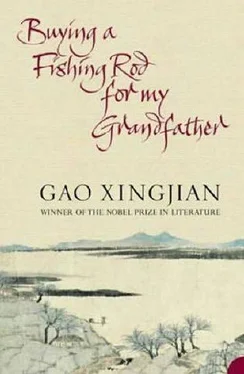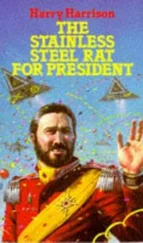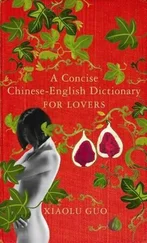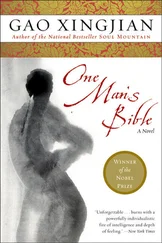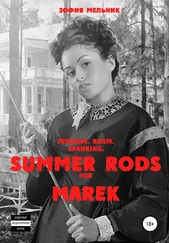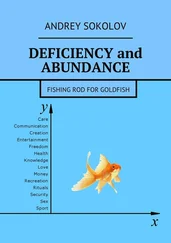While still in Beijing Gao wrote a brief postscript for his seventeen-story collection, Buying a Fishing Rod for My Grandfather, in which he warns readers that his fiction does not set out to tell a story. There is no plot, as found in most fiction, and anything of interest to be found in it is inherent in the language itself. More explicit is his proposal that the linguistic art of fiction is "the actualization of language and not the imitation of reality in writing," and that its power to fascinate lies in the fact that, even while employing language, it is able to evoke authentic feelings in the reader. The stories of Buying a Fishing Rod for My Grandfather and the novels Lingshan (1990; translated as Soul Mountain , 2000) and Yige ren de shengjing (1999; translated as One Man's Bible, 2002) document the scope of Gao's unique and continuing experimentation in the genre.
Mabel Lee
University of Sydney
***
"The Temple " was first published in Chinese as "Yuan en si" in Haiyan 7 (Dalian, 1983). First collected in Gao Xingjian, Gei wo laoye mai yugan (Taipei: Lianhe Literature Publishing House, 1989). First published in English in The New Yorker (February 17 and 24, 2003).
"In the Park" was first published in Chinese as "Gongyuan li " in Nanfang wenxue 4 (Guangzhou, 1985). First collected in Gao Xingjian, Gei wo laoye mai yugan (Taipei: Lianhe Literature Publishing House, 1989). First published in English in The Kenyon Review 26, no. 1 (winter 2004).
"Cramp" was first published in Chinese as "Choujin" in Xiaoshuo zhoubao 1 (Beijing, 1985). First collected in Gao Xingjian, Gei wo laoye mai yugan (Taipei: Lianhe Literature Publishing House, 1989).
"The Accident" was first published in Chinese as "Chehuo" in Fujian wenxue 5 (Fuzhou, 1985). First collected in Gao Xingjian, Gei wo laoye mai yugan (Taipei: Lianhe Literature Publishing House, 1989). First published in English in The New Yorker (June 2, 2003).
"Buying a Fishing Rod for My Grandfather" was first published in Chinese as "Gei wo laoye mai yugan" in Renmin wenxue 9 (Beijing, 1986). First collected in Gao Xingjian, Gei wo laoye mai yugan (Taipei: Lianhe Literature Publishing House, 1989). First published in English in Grand Street 72 (fall 2003).
"In an Instant" was first published in Chinese as "Shunjian" in Jin-tian 1 (Stockholm, 1991), and first collected in Zhoumo sichongzou (Hong Kong: New Century Publishing House, 1996).
Gao Xingjian is the first Chinese recipient of the Nobel Prize in Literature. Born in 1940 in Jiangxi Province in eastern China, he studied in state schools, earned a university degree in French in Beijing, and embarked on a life of letters. Choosing exile in 1987, he settled in Paris, where he completed Soul Mountain two years later. In 1992 he was named a Chevalier de L'Ordre des Art et des Lettres by the French government. He is a playwright and painter as well as a fiction writer and critic.
***
Mabel Lee, P.h.D., has been a Professor of Asian Studies at the University of Sydney. Dr. Lee is one of Australia 's leading authorities on Chinese cultural affairs. She has translated both of Gao Xingjian's novels, Soul Mountain and One Man ' s Bible.
Gao Xingjian
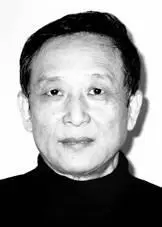
Gao Xingjian, born January 4, 1940 in Ganzhou (Jiangxi province) in eastern China, is today a French citizen. Writer of prose, translator, dramatist, director, critic and artist. Gao Xingjian grew up during the aftermath of the Japanese invasion, his father was a bank official and his mother an amateur actress who stimulated the young Gao's interest in the theatre and writing. He received his basic education in the schools of the People's Republic and took a degree in French in 1962 at the Department of Foreign Languages in Beijing. During the Cultural Revolution (1966-76) he was sent to a re-education camp and felt it necessary to burn a suitcase full of manuscripts. Not until 1979 could he publish his work and travel abroad, to France and Italy. During the period 1980-87 he published short stories, essays and dramas in literary magazines in China and also four books: Premier essai sur les techniques du roman moderne / A Preliminary Discussion of the Art of Modern Fiction (1981) which gave rise to a violent polemic on "modernism", the narrative A Pigeon Called Red Beak (1985), Collected Plays (1985) and In Search of a Modern Form of Dramatic Representation (1987). Several of his experimental and pioneering plays – inspired in part by Brecht, Artaud and Beckett – were produced at the Theatre of Popular Art in Beijing: his theatrical debut with Signal d'alarme / Signal Alarm (1982) was a tempestuous success, and the absurd drama which established his reputation Arrêt de bus / Bus Stop (1983) was condemned during the campaign against "intellectual pollution" (described by one eminent member of the party as the most pernicious piece of writing since the foundation of the People's Republic); L'Homme sauvage / Wild Man (1985) also gave rise to heated domestic polemic and international attention.
In 1986 L 'autre rive / The Other Shore was banned and since then none of his plays have been performed in China. In order to avoid harassment he undertook a ten-month walking-tour of the forest and mountain regions of Sichuan Province, tracing the course of the Yangzi river from its source to the coast. In 1987 he left China and settled down a year later in Paris as a political refugee. After the massacre on the Square of Heavenly Peace in 1989 he left the Chinese Communist Party. After publication of La fuite / Fugitives , which takes place against the background of this massacre, he was declared persona non grata by the regime and his works were banned. In the summer of 1982, Gao Xingjian had already started working on his prodigious novel La Montagne de l'Âme / Soul Mountain , in which – by means of an odyssey in time and space through the Chinese countryside – he enacts an individual's search for roots, inner peace and liberty. This is supplemented by the more autobiographical Le Livre d'un homme seul / One Man's Bible .
A number of his works have been translated into various languages, and today several of his plays are being produced in various parts of the world. In Sweden he has been translated and introduced by Göran Malmqvist, and two of his plays ( Summer Rain in Peking , Fugitives ) have been performed at the Royal Dramatic Theatre in Stockholm.
Gao Xingjian paints in ink and has had some thirty international exhibitions and provides the cover illustrations for his own books.
Awards: Chevalier de l'Ordre des Arts et des Lettres 1992; Prix Communauté française de Belgique 1994 (for Le somnambule ), Prix du Nouvel An chinois 1997 (for Soul Mountain ).
A selection of works by Gao Xingjian in English
Wild Man: a Contemporary Chinese Spoken Drama . Transl. and annotated by Bruno Roubicek. Asian Theatre Journal. Vol. 7, Nr 2. Fa1l 1990.
Читать дальше
Конец ознакомительного отрывка
Купить книгу
